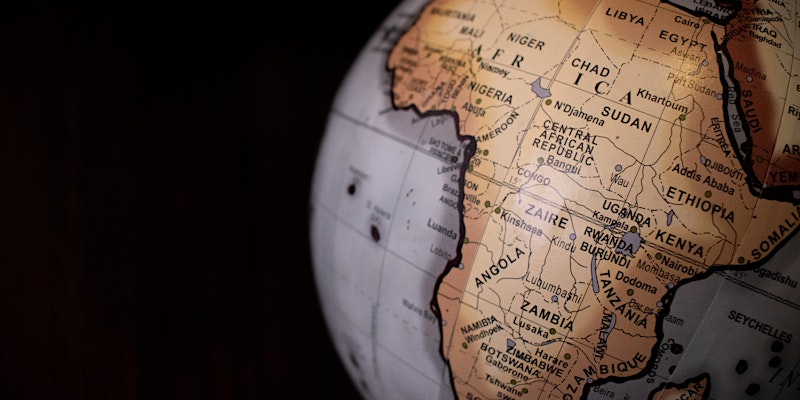Keynote presents improving and delivering relevant education online in Africa to meet individuals’ needs and enhance sustainability and wellbeing.
Watch the video
Synopsis
The 21st century has seen all communities everywhere faced with challenges, which to a large extent need to be addressed through education that is relevant to the life and wellbeing of the people. The COVID-19 pandemic has drawn no distinction between advanced and developing countries. It has reduced everyone to the same fundamental level of value and care for life as individuals living in communities. This keynote touches on ways of improving and delivering education that is relevant to the people and the continent for sustainable development and wellbeing.
It is established that education is the key to success for individual and communities anywhere. In the current situation of COVID-19 pandemic, education remains important for sustaining physical health and mental wellbeing people and economic growth of society. With the ever growing digital divide, the questions remain, is the education curriculum in Africa relevant? What role is e-learning and how ready are the key players for implementing changes?
Decolonising the curriculum is a movement that started some twenty years ago aimed at ensuring the knowledge and practices of indigenous people were represented in education curricula of post-colonial countries. In recent times this has been reignited by students in South Africa and also in the UL championed by National Union of students demanding the placement of indigenous knowledge on equal footing with curriculum from outside. Decolonising the curriculum provides all subjects opportunities to reconsider teaching matter. This includes who is teaching, what the subject matter is that is being taught and how it's being taught.
This presentation explores the origin and meaning of decolonizing the curriculum considering issues of diversification and inclusion. we report on technology in education curriculum decolonization and the possibilities going forward. Africa is resource rich but has been assessed to be the poorest continent in the world. Access to and the use of education via e-learning as a tool remains vital for rebooting development and growth of communities with a view to promoting knowledge acquisition and economic growth. We report on the philosophy, structure and mode of delivery of education in Africa. We touch on the influence of culture, history and role of e-learning in ensuring transition from being closed to being an open society and also in facilitating access-on-the-move to people and resources outside Africa.
In the light of the recently launched United Nations Sustainable Development Goals, we examine issues of sustainability and rebooting the future. This presentation concludes that the provision of relevant and decolonized curriculum requires radical change. There remains critical questions to be answered and key factors to be considered if it is to be delivered successfully. Online mode of education, otherwise referred to as E-Learning has and continues to be an important vehicle and a tool that has potential to create the necessary change to achieve success. This does however require all sectors and practitioners both inside and outside Africa to work together at all levels.
About the speaker
James Uhomoibhi CPhys FBCS MInstP CITP, Chair of the e-Learning specialist group
James is Chartered Physicist and a member of the Institute of Physics in the UK, a chartered IT Professional and a lecturer in Engineering. He leads the development and work of the mixed, augmented and virtual reality laboratory for scalable computing. His current research focus is on AI in education, ARLE (augmented reality learning environment) and spectroscopy for food security. His area of expertise includes, laser spectroscopy, e-learning, Machine learning. He has authored over 140 research publications across the disciplines.
James is the Chair of the e-Learning specialist group. He is a Chartered IT Professional, a Fellow of the British Computer Society (FBCS), The Chartered Institute for IT, a member of the Institution for Engineering and Technology (IET) and a Fellow of the UK Higher Education Academy. He is also a member of ACM and of IEEE-SA.
James Uhomoibhi is visiting Professor of Physics, Computer Science and IT in Nigerian Universities, a visiting professor of Science Technology and Environmental Studies at the Open University of Tanzania and a visiting Lead Scientist at the African City of Technology, Sudan. He is a LEADS Scholar in Nigeria with the responsibility of linking experts and academics in the Diaspora to institutions and communities in the country. His research interests are in Artificial Intelligence for Enhanced Education and Research in Physics, Computing, Engineering and Education. Presently he is Head of the Mixed Augmented and Virtual Reality Research Laboratory (MAVRLAB) of the Artificial Intelligence Research Centre.
Our events are for adults aged 16 years and over.
This event is brought to you by: BCS e-Learning specialist group with BCS Hampshire branch














